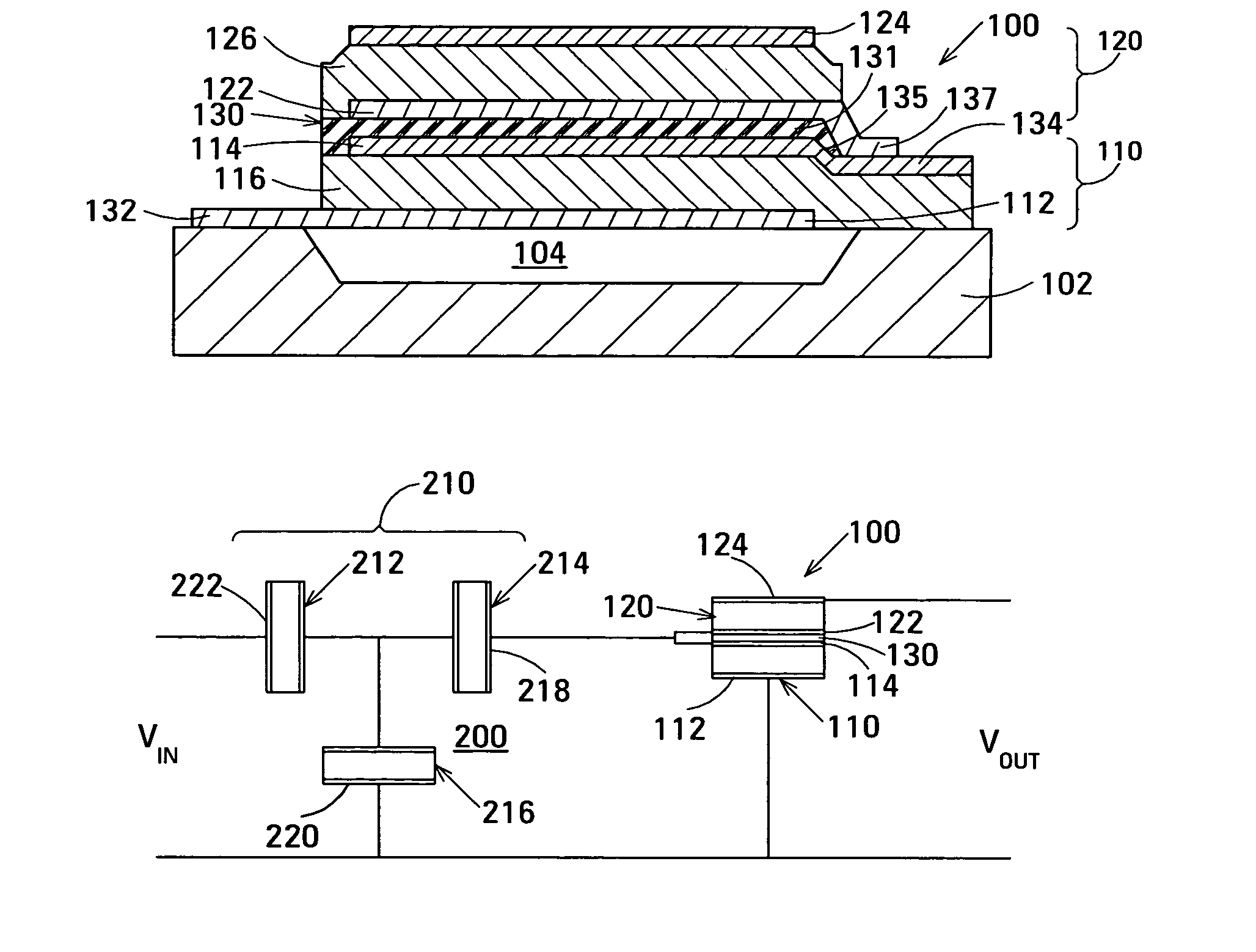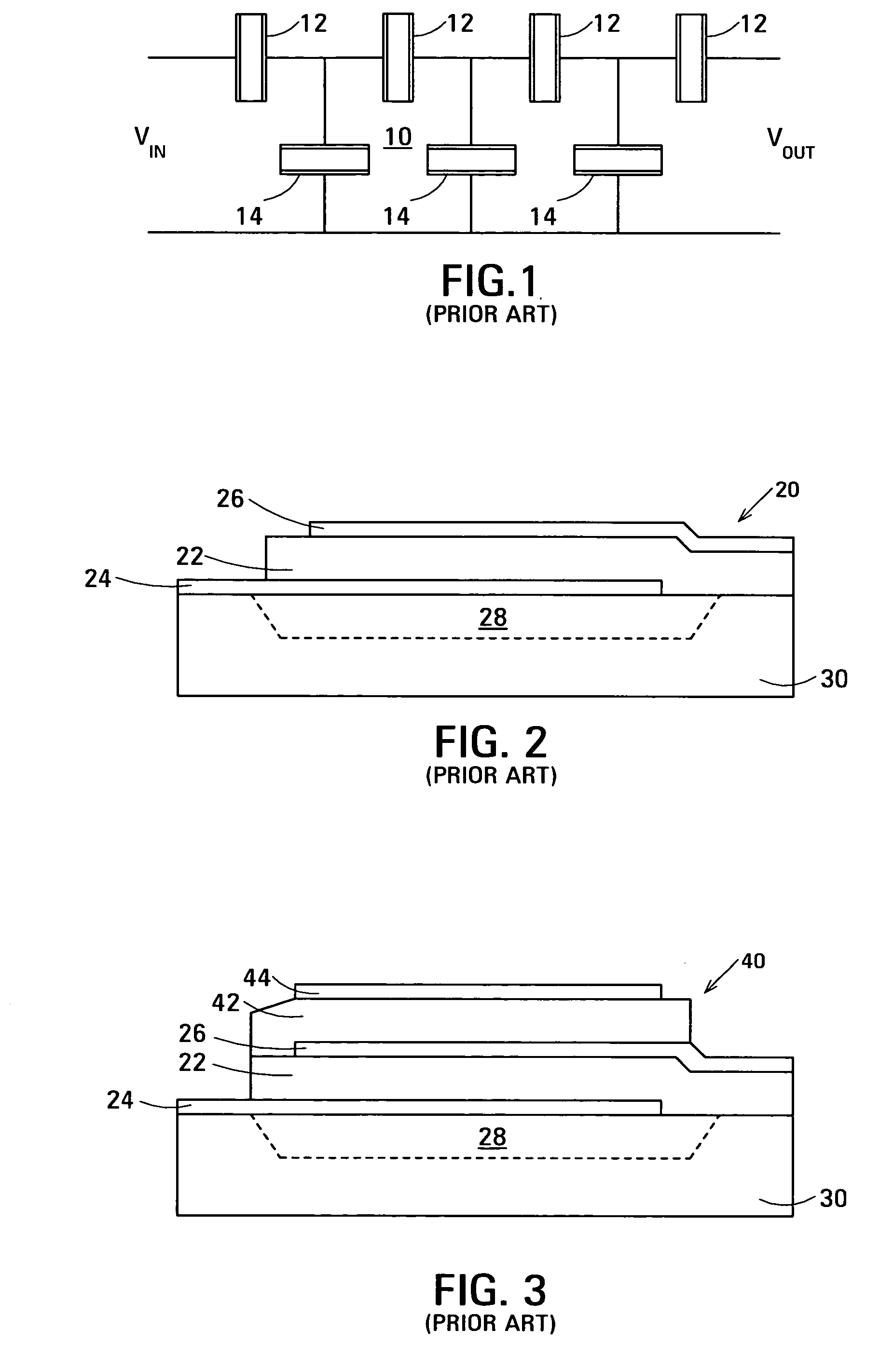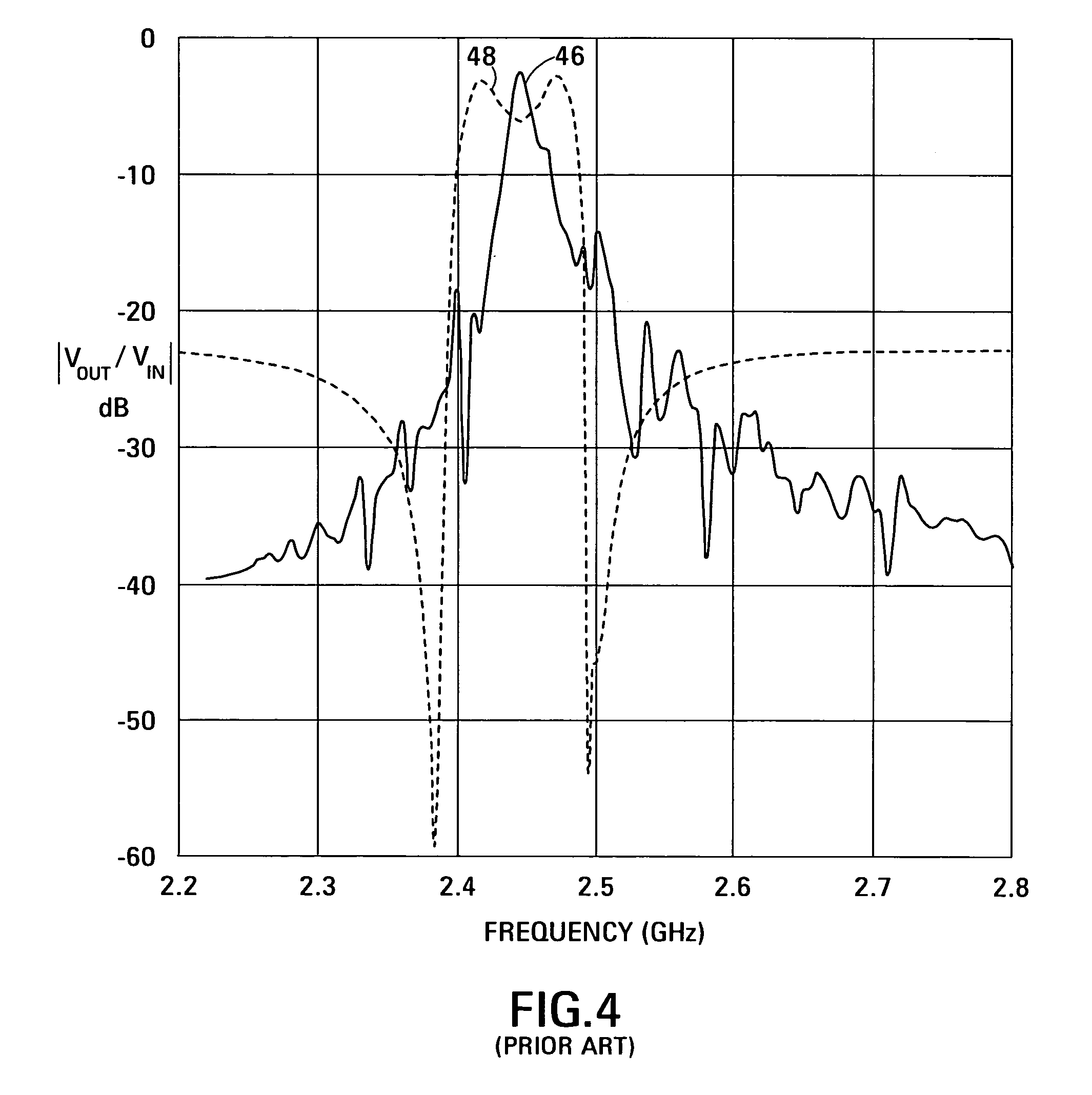Stacked bulk acoustic resonator band-pass filter with controllable pass bandwidth
a bandpass filter and bulk technology, applied in the direction of impedence networks, generators/motors, device material selection, etc., can solve the problems of sbar unsuitable for sbar is unsuitable for use in most band-pass filtering applications, and the physical size of such products has tended to decrease significantly, so as to achieve low insertion loss, good out-of-band rejection, and less acoustic energy
- Summary
- Abstract
- Description
- Claims
- Application Information
AI Technical Summary
Benefits of technology
Problems solved by technology
Method used
Image
Examples
exemplary embodiment 100
[0027]FIG. 5A is a schematic side view showing the structure of an exemplary embodiment 100 of a band-pass filter in accordance with the invention. FIG. 5B is a cross-sectional view along the section line 5B—5B in FIG. 5A. Band-pass filter 100 is composed of a stacked pair of film bulk acoustic resonators (FBARs) 110 and 120. In the example shown, FBAR 120 is stacked atop FBAR 110. FBAR 110 is composed of opposed planar electrodes 112 and 114 and a layer 116 of piezoelectric material between the electrodes. FBAR 120 is composed of opposed planar electrodes 122 and 124 and a layer 126 of piezoelectric material between the electrodes. Band-pass filter 100 is also composed of an acoustic decoupler 130 between FBARs 110 and 120, specifically, between electrodes 114 and 122. The acoustic decoupler controls the coupling of acoustic energy between FBARs 110 and 120. Specifically, the acoustic decoupler couples less acoustic energy between the FBARs than would be coupled by direct contact b...
exemplary embodiment 200
[0081]A comparison of FIG. 6 with curve 46 of FIG. 4 shows that the slope of the out-of-band frequency response of band-pass filter 100 is less steep than that of the band-pass ladder filter 10 shown in FIG. 1. The comparison also shows that, unlike that of band-pass ladder filter 10, the frequency response of band-pass filter 100 does not rise again after the initial sharp fall. FIG. 8 is a schematic drawing of an exemplary embodiment 200 of a band-pass filter in accordance with the invention having an out-of-band frequency response that has a steeper slope than that of band-pass filter 100, and in which, after the initial sharp fall, the frequency response rises to a substantially lower level than the band-pass ladder filter shown in FIG. 1.
[0082]Band-pass filter 200 is composed of a simplified FBAR-based ladder filter 210 connected in series with band-pass filter 100 described above with reference to FIGS. 5A and 5B. Ladder filter 210 is composed of series FBARs 212 and 214 and a...
PUM
| Property | Measurement | Unit |
|---|---|---|
| center frequency | aaaaa | aaaaa |
| insertion loss | aaaaa | aaaaa |
| insertion loss | aaaaa | aaaaa |
Abstract
Description
Claims
Application Information
 Login to View More
Login to View More - R&D
- Intellectual Property
- Life Sciences
- Materials
- Tech Scout
- Unparalleled Data Quality
- Higher Quality Content
- 60% Fewer Hallucinations
Browse by: Latest US Patents, China's latest patents, Technical Efficacy Thesaurus, Application Domain, Technology Topic, Popular Technical Reports.
© 2025 PatSnap. All rights reserved.Legal|Privacy policy|Modern Slavery Act Transparency Statement|Sitemap|About US| Contact US: help@patsnap.com



